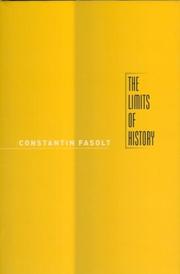Book
ISBN: 9788836645527 8836645526 Year: 2020 Publisher: Cinisello Balsamo Silvana editoriale
Abstract | Keywords | Export | Availability | Bookmark
 Loading...
Loading...Choose an application
- Reference Manager
- EndNote
- RefWorks (Direct export to RefWorks)
This volume is dedicated to Taddeo di Bartolo (c. 1362-1422), painter of Sienese origin who, as the travelling master he was, spent a good part of his career moving between Tuscany, Liguria and Umbria, serving politically and economically powerful families, public authorities, large religious orders and brotherhoods. He was responsible for imposing altar polyptychs, a sacred art form of which he was the undisputed master: the re-composition of some of these apparatuses, such as the now dismembered altarpiece of San Francesco al Prato in Perugia, constitutes the fulcrum of the studies gathered in these pages.The book also documents Taddeo's other fields of activity: from the creation of processional banners to small tables of private devotion, up to the important role as fresco painter with the decoration of the chapel of the Palazzo Pubblico in Siena. With historical essays and documentary apparatuses, the volume edited by Marco Pierini and Gail Solberg - the painter's most accredited scholar - is therefore a complete and updated monograph on the figure of the artist.
Book
Year: 1936 Publisher: Amsterdam: Paris,
Abstract | Keywords | Export | Availability | Bookmark
 Loading...
Loading...Choose an application
- Reference Manager
- EndNote
- RefWorks (Direct export to RefWorks)
Article
Abstract | Keywords | Export | Availability | Bookmark
 Loading...
Loading...Choose an application
- Reference Manager
- EndNote
- RefWorks (Direct export to RefWorks)
Bartolo, Jack de --- Bruder, William P. --- Burnette, Wendell --- Christ, Tim

ISBN: 0226239101 Year: 2004 Publisher: Chicago : University of Chicago Press,
Abstract | Keywords | Export | Availability | Bookmark
 Loading...
Loading...Choose an application
- Reference Manager
- EndNote
- RefWorks (Direct export to RefWorks)
Historiography. --- History --- History, Ancient --- Philosophy. --- Historiography. --- Conring, Hermann, --- Bartolo,
Book
ISBN: 022610124X 9780226101248 Year: 2013 Publisher: Chicago (Ill.) : University of Chicago press,
Abstract | Keywords | Export | Availability | Bookmark
 Loading...
Loading...Choose an application
- Reference Manager
- EndNote
- RefWorks (Direct export to RefWorks)
History --- Historiography. --- History, Ancient --- Historiography. --- History, Ancient --- History --- Philosophy. --- Historiography. --- Historiography. --- Philosophy. --- Conring, Hermann, --- Bartolo, --- Bartolo, --- Conring, Hermann,
Book
Year: 1957 Publisher: Firenze : Leo S. Olschki,
Abstract | Keywords | Export | Availability | Bookmark
 Loading...
Loading...Choose an application
- Reference Manager
- EndNote
- RefWorks (Direct export to RefWorks)

ISBN: 3465032659 9783465032656 Year: 2003 Volume: 160 Publisher: Frankfurt am Main Vittorio Klostermann
Abstract | Keywords | Export | Availability | Bookmark
 Loading...
Loading...Choose an application
- Reference Manager
- EndNote
- RefWorks (Direct export to RefWorks)
Getuigen --- Getuigen (Romeins recht) --- Témoins --- Témoins (Droit romain) --- Witnesses --- Witnesses (Roman law) --- Bartolo of Sassoferrato
Book
Year: 1913 Publisher: Cambridge : University press,
Abstract | Keywords | Export | Availability | Bookmark
 Loading...
Loading...Choose an application
- Reference Manager
- EndNote
- RefWorks (Direct export to RefWorks)
Political science --- Science politique --- History --- Histoire --- Bartolo, --- Holy Roman Empire --- Saint Empire romain germanique
Book
ISBN: 8834846680 9788834846681 Year: 2004 Publisher: Torino G. Giappichelli
Abstract | Keywords | Export | Availability | Bookmark
 Loading...
Loading...Choose an application
- Reference Manager
- EndNote
- RefWorks (Direct export to RefWorks)
Guilt (Roman law) --- Law, Medieval --- Roman law --- Interpretation and construction --- Bartolo, --- Digestum vetus.
Book
ISBN: 1139343378 1108051405 Year: 2013 Publisher: Cambridge : Cambridge University Press,
Abstract | Keywords | Export | Availability | Bookmark
 Loading...
Loading...Choose an application
- Reference Manager
- EndNote
- RefWorks (Direct export to RefWorks)
Cecil Nathan Sidney Woolf (1887-1917), Fellow of Trinity College, Cambridge, was killed in the First World War. In this prize-winning book Woolf examines the way in which the medieval jurist Bartolus of Sassoferrato (1314-57) interprets the Roman Law to make it relevant to 14th-century Italian political reality. Considering Bartolus's treatment of the relationships between the Roman Empire and the papacy, kingdoms and city-republics, Woolf places Bartolus's thought in its wider historical context by surveying the complex problem of the empire from the mid-13th century onwards. In particular, he assesses Bartolus's most famous argument that the city is its own emperor. Arguing that Bartolus's influence lasted into the early modern period, both in the practice of law and in the use made of his works by writers like Bodin and Albericus Gentilis.
Political science --- History. --- Bartolo, --- Holy Roman Empire --- State, The --- History of theories --- Alphanis, Bartolus Severus de, --- Bartholus, --- Bartole, --- Bartolus, --- Bartolus de Saxoferrato, --- Bartolus Severus de Alphanis, --- Sasferrato, Bartole da, --- Sassoferrato, Bartolo of, --- Saxo Ferrato, Bartholus de, --- Saxoferrato, Bartolus de,

 Search
Search Feedback
Feedback About UniCat
About UniCat  Help
Help News
News